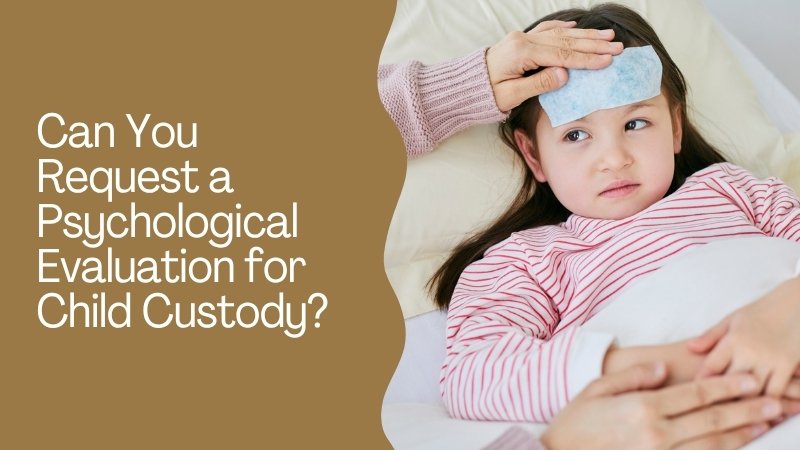Yes, a psychological evaluation can be requested during a child custody case. These evaluations help the court understand the mental and emotional fitness of each parent and ensure decisions are made in the best interests of the child.
Who Can Request a Psychological Evaluation?
- A parent involved in the custody dispute
- An attorney representing either party
- The judge or court handling the case
While anyone can request the evaluation, only the judge can approve it. Courts typically approve these requests when there are concerns about:
- Mental illness
- Substance abuse
- Allegations of abuse or neglect
- High-conflict co-parenting
- Parental alienation
What Happens During the Evaluation?
A licensed psychologist or mental health professional conducts the evaluation, which may include:
- Interviews with both parents
- Interviews or observations of the child
- Psychological testing
- Review of medical, educational, or legal records
- Home visits (if ordered by the court)
The evaluator compiles findings into a formal report submitted to the court. This report can significantly influence the outcome of the custody arrangement.
Does the Evaluation Decide Custody?
No — the evaluator does not make legal decisions. Instead, they provide a professional recommendation to help the judge make an informed ruling. The court considers the evaluator’s report along with all other evidence in the case.
How to Prepare for a Psychological Evaluation
- Be honest and cooperative
- Focus on your child’s needs and well-being
- Avoid speaking negatively about the other parent
- Follow any court or evaluator instructions closely
Why Psychological Evaluations Matter in Custody Cases
These evaluations offer a neutral, expert perspective that goes beyond legal claims. They help uncover important psychological, emotional, or behavioral factors that affect a child’s development and safety.
Yes. A parent, attorney, or the court can request a psychological evaluation during a child custody case. These evaluations help assess each parent’s mental health and parenting ability to determine what’s in the best interest of the child


